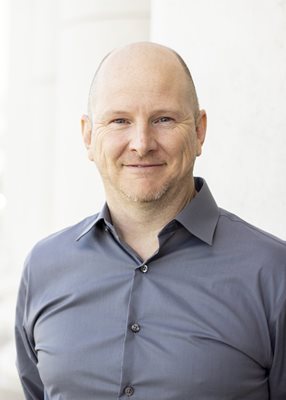News
Q&A with Grad School Staff: Kim Widdison
Kim Widdison, Graduate Records Coordinator for the Graduate and Professional School, has worked in graduate records processing for over 20 years. She has seen a lot of changes at Texas A&M, especially in the administration of graduate and professional education at the university. Intricately involved in the process of graduate and professional student record-keeping, she has seen even more documents and forms cross her desk.
What does the Graduate Records Coordinator do?
I'm part of a great team that processes all documents related to degree matriculation, for every graduate student at Texas A&M from admission to graduation. I do a little bit of everything related to records processing.
More specifically, I’m responsible for clearing students for graduation. Our office schedules periodic audit reports on all the students who have applied for graduation. These audit reports show students as “cleared” or “not cleared.” If they are not cleared, the Registrar’s Office marks them as “pending” in Howdy. We identify the reasons why students aren’t clearing, then contact the students and their departments so they can take actions needed to get cleared and graduate.
We have over 16,000 graduate students. Just this semester alone, we have over 1,700 graduate students who will be graduating from their programs. How many documents are we talking here?
That depends on their program. For a master’s student who doesn’t have a final exam or thesis requirement, it could be just one, but is generally at least two or three. At the other end of the spectrum, doctoral students submit approximately 12-15 documents to our office. That’s including degree plans and changes to degree plans, such as coursework and committee petitions, research approval forms, thesis/dissertation approval forms, copyright availability form, final exam requests and reports, and more.
How long have you been in this role in the Grad School?
It’ll be 20 years in July.
So, you’ve seen a lot of documents.
Ha! Yes. Thousands every semester.
Do you ever meet with students one-on-one?
Yes. We are always available to meet face-to-face with students, but mostly they call or email. I field about 60 emails or phone calls a day on average – especially at the end of each semester to do case-by-case problem solving. Some are from grad advisors, but many are from from students wondering why they haven’t cleared for graduation or asking questions about forms that were sent back because they don’t have all the required information or the right signatures or approvals. We also work closely with grad advisors and other staff from every college and department office and other service offices, too: the Registrar, Degree Audit Office, EIS, Aggie One Stop, and Admissions. Whenever a student encounters a problem with a document or form, we can find a solution or connect them with someone who can.
Are there ebbs and flows to the intensity of your job?
We receive and process documents year-round. But it definitely gets more intense at the end of the semester as we approach audit night. That’s the night grades are due and students who have applied to graduate will, depending on their final grade, be moved from “pending” to “cleared for graduation” in our system. Our team is generally here until 10:00 p.m. or sometimes as late a 1:00 a.m. We’re on zoom with EIS and the Registrar’s Office working to identify the reasons students haven’t cleared and resolving those issues to get them cleared. It’s a long and grueling night and it can be a hard job at other times of the year, too. But if the students completed their degree plans, we do what we can to make sure they are able to graduate. I know how important commencement is. Whenever I feel overwhelmed by the work, I always think about my own kids.If they were in a situation where they needed help, I would want someone to help alleviate their stress so they could focus on – and enjoy – the commemoration of one of the greatest accomplishments of their life. And that’s what I want for our students.
In addition to your job on the processing team, you – like all Grad School staff – work master’s and doctoral commencement. What’s that like for you? Do you feel connected to graduating students whose documents you processed?
I do. It’s a tug at my heart. For the students who we had to scramble and work together at the last minute to get cleared, it’s a really special moment. But it’s special for all our graduating students. The processing team may operate behind the scenes, but we’re playing a crucial role in their matriculation through their programs. We’re ensuring that they have satisfactorily completed all the steps in the process they set out however so many years ago to complete and get to graduate. Being able to see them at commencement completing that journey we were a big part of . . . that’s what it’s all about.
[If you’re not a grad advisor or an employee in EIS or the registrar’s office, you can say “howdy” to Kim at either of the master’s and doctoral commencement ceremonies on Saturday, May 13, at Reed Arena.]
